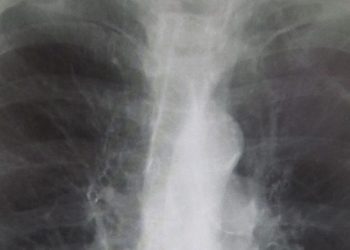Dupilumab For Management of Bullous Pemphigoids
1. Dupilumab treatment for bullous pemphigoids resulted in improved clinical symptoms.
2. Patients with anti-BP180 antibody levels of at least 50RU/mL and female sex responded better to dupilumab treatment for bullous pemphigoids
Evidence Rating Level: 2 (Good)
Study Rundown: Bullous pemphigoid (BP) is an autoimmune disease resulting in erythema, tense blisters, and severe itching. Onset is linked to autoantibodies against BP antigens 180 and 230 that activate inflammatory cell infiltration once bound to their targets. Treatment often involves long-term high-dose immunosuppression, which can be unsustainable for patients with comorbidities. Biologics, such as dupilumab, may be an effective BP treatment by blocking IL-4 receptor alpha, which is upregulated in BP lesions. This large-scale study investigated the effectiveness and safety of dupilumab, finding that dupilumab improved clinical symptoms in patients with BP. Limitations of this study include the lack of restriction for concomitant medications and the limited sample size of patients within each treatment regimen.
Click to read the study in JAMA Dermatology
Relevant Reading: Rituximab, Omalizumab, and Dupilumab Treatment Outcomes in Bullous Pemphigoid: A Systematic Review
In-Depth [retrospective cohort]: For this retrospective study, data were derived from 6 dermatology departments in the National Autoimmune Bullous Diseases Cooperative Group of China between January 1, 2021, and July 31, 2022. Inclusion criteria included a diagnosis of BP based on guideline indicators (e.g., clinical presentation, positive direct immunofluorescence microscopy findings, and detection of serum anti-BP180 or anti-BP230 immunoglobin IgG autoantibodies) and having a follow-up at least 4 weeks after initializing dupilumab treatment. Patients with previous treatments of other biologics within 6 months or dupilumab for other indications were excluded. Additionally, any drug-included BP was excluded after carefully reviewing the patient’s medical history. The initial dose of dupilumab was 600 mg followed by 300 mg every 2 weeks, and follow-ups were every 2 weeks within the first month and then every 4 to 8 weeks after, with more severe diseases having more frequent follow-ups (median follow-up period of 24.6 weeks and a range of 11.5-38.4 weeks). Patients with mild diseases or contraindications to oral steroids concomitantly received minocycline or topical steroids. Patients with moderate to severe disorders received 0.3 mg/kg/d of steroids, with minocycline and topical steroids. Lastly, severe conditions ranged from 0.5-0.7 mg/kg/d of oral steroids. The primary outcome was the patient proportion reaching disease control within 4 weeks, defined as healing existing lesions without any new lesions and pruritus. Secondary outcomes included complete remission rates, relapse rates, change in BP Disease Area Index scores, itching numerical rating scale scores, laboratory results within 64 weeks, and adverse events. In total, 146 patients (median [IQR] age, 73 [64-85] years; 86 [58.9%] male patients) were included, and 127 (87.0%) reached disease control within 4 weeks at a median time of 14 (IQR 7-14) days. Complete remission was achieved in 52 (35.6%) patients, 13 (8.9%) had a relapse within the observation period, and males were more likely to relapse (HR, 10.97; 95% CI, 1.42-84.92; P = .02). At week 64, complete remission was 62.5% (5 of 8), and the cumulative relapse was 30.9%. All clinical indicators and laboratory examinations improved after dupilumab treatment, and 73.3% reported no adverse events. Of the adverse events reported, the most common were infections and eosinophilia. Four-week disease control was associated with serum anti-BP180 antibody levels greater than 50 relative units (RU)/mL (OR, 3.63; 95% CI, 0.97-12.61; P = .045). Overall, dupilumab was associated with improved BP clinical symptoms with a favourable safety profile.
Image: PD
©2023 2 Minute Medicine, Inc. All rights reserved. No works may be reproduced without expressed written consent from 2 Minute Medicine, Inc. Inquire about licensing here. No article should be construed as medical advice and is not intended as such by the authors or by 2 Minute Medicine, Inc.









